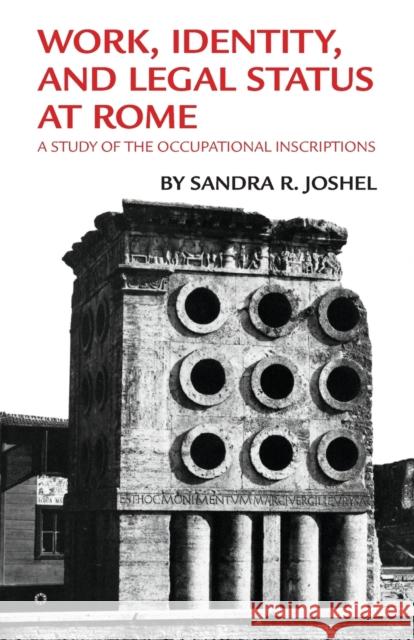Work, Identity, and Legal Status at Rome: A Study of the Occupational Inscriptions » książka
Work, Identity, and Legal Status at Rome: A Study of the Occupational Inscriptions
ISBN-13: 9780806124445 / Angielski / Miękka / 1993 / 256 str.
In Work, Identity, and Legal Status at Rome, Sandra R. Joshel examines Roman commemorative inscriptions from the first and second centuries A.D. to determine ways in which slaves, freed slaves, and unprivileged freeborn citizens used work to frame their identities. The inscriptions indicate the significance of work-as a source of community, a way to reframe the conditions of legal status, an assertion of activity against upper-class passivity, and a standard of assessment based on economic achievement rather than birth. Drawing on sociology, anthropology, ethnography, and women's history, this thoroughly documented volume illuminates the dynamics of work and slavery at Rome. Sandra R. Joshel, who holds a doctoral degree in history from Rutgers University, teaches at the New England conservatory of Music.
In Work, Identity, and Legal Status at Rome, Sandra R. Joshel examines Roman commemorative inscriptions from the first and second centuries A.D. to determine ways in which slaves, freed slaves, and unprivileged freeborn citizens used work to frame their identities. The inscriptions indicate the significance of work-as a source of community, a way to reframe the conditions of legal status, an assertion of activity against upper-class passivity, and a standard of assessment based on economic achievement rather than birth. Drawing on sociology, anthropology, ethnography, and womens history, this thoroughly documented volume illuminates the dynamics of work and slavery at Rome.Sandra R. Joshel, who holds a doctoral degree in history from Rutgers University, teaches at the New England conservatory of Music.











